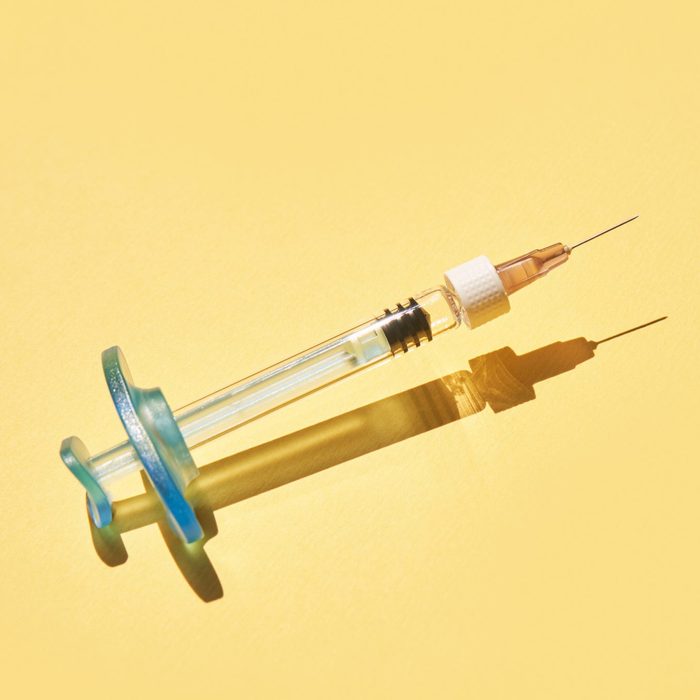65 or Older? You’re Probably Due for Another COVID Booster, Say Experts
Updated: Apr. 18, 2024

If you've wondered when your next COVID booster should be, national experts have the answer with a timeline for ongoing booster maintenance.
While COVID-19 infections have dropped significantly after a wave that had been accurately projected following the holiday season, the virus is still circulating.
National data state that the week of April 6, 2024—the latest for which data is available—resulted in more than 7,000 hospitalizations and 266 COVID-related deaths in the U.S.
While these figures contrast significantly with the greater-than 35,000 hospitalizations and 2,469 deaths reported the week of January 6, 2024, keeping up-to-date with vaccines has been demonstrated to prevent serious illness, especially in individuals with compromised immune systems and people 65 and older. Now authorities have said that if the last time you had a shot was in the fall, it could be time for you to get another one to be fully protected.
The Centers for Disease Control (CDC) issued its latest recommendations on February 28, 2024, informing people 65 and older that they were eligible for another dose of the updated 2023-2024 COVID-19 vaccine. “Today’s recommendation allows older adults to receive an additional dose of this season’s COVID-19 vaccine to provide added protection,” said Mandy Cohen, MD, MPH, the director of the CDC in the release.
Staying on top of the vaccine schedule is important for everyone, but those who fall into the high-risk category are more likely to be hospitalized if they contract COVID. While the dominant variant, JN.1, which accounts for over 83% of current cases, isn’t considered to be severe, it is extremely transmissible and can still cause serious illness and death among the most vulnerable. “Most COVID-19 deaths and hospitalizations last year were among people 65 years and older. An additional vaccine dose can provide added protection that may have decreased over time for those at highest risk,” said Dr. Cohen.
If you are 65 or older and received an updated vaccine in the fall or early winter months, you are eligible for another dose four months after your latest. Lisa Dunkle, MD, the vice president and global medical lead at Novavax, a biotech company that develops vaccines believes that a spring dose of the COVID vaccine “remains the best means of protection against death and serious illness.” She too highlights that age is one of the biggest factors in how severely the virus affects people: “I have seen firsthand how COVID takes a disproportionate toll on older Americans. Most COVID deaths and hospitalizations last year were among the 65+ population.”
CDC vaccine schedule guidelines note that anyone over 65 who has received two doses of the 2023-2024 updated COVID-19 vaccines from Pfizer-BioNTech, Moderna, or Novavax, spaced four months apart, is considered up-to-date. If you have recently been diagnosed with COVID you can wait three months before getting a vaccine, but be sure to talk with your licensed healthcare provider for specific guidance.

















